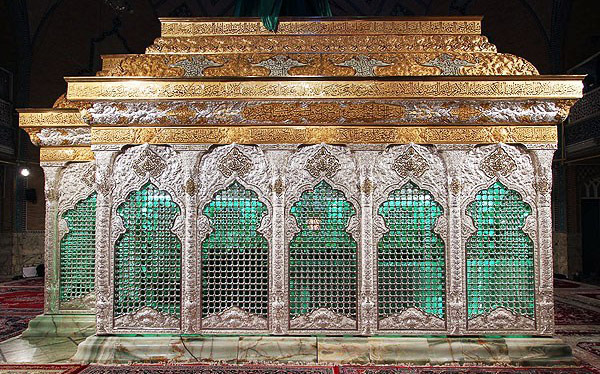ISIS reacting to the loss of Jurf al-Sakhar with propaganda in Falluja, saying supporters “Don’t be afraid and worry what happened in Jurf al-Sakhar. The mujahideen will be back, be cheerful. We have 100 suicide bombers preparing for the battle of Amriyat al-Falluja.”
Iraq’s Prime Minister Haider al-Abadi visited the southern district of Jurf al-Sakhr which has recently witnessed pitched battles between government troops alongside Shiite volunteer militiamen against the ISIS group.Jurf al-Sakhr, about 60 kilometres (37 miles) south of Baghdad, was seized by IS last June. The Iraqi government said the area was liberated from IS extremists.
Al-Abadi during his visit on Saturday, made a rousing speech to the troops and vowed that Iraqis united would prevail over the IS militants.”By own our capabilities, we are able to liberate our territories from ISIL. All Iraqis are one hand. Coordination will continue between the al-Hashid al-Sha’abi (Popular militiamen) and Iraqi security troops as it is now. Such coordination will continue in Babil, Baghdad, Anbar and Mosul. All Iraqis are one hand, and we will overcome terrorism.”Haider al-Abadi said:
Thousands of Iraqi Shiites answered a call from top Shiite cleric Ayatollah Ali al-Sistani in June to join security forces fighting the militants, who have captured swathes of land in the country’s west and north.
Iraqi government forces retook four villages on Sunday near a mountain ridge overlooking ISIS supply lines, security officials said, in a campaign which has struggled to make advances against the insurgents.Iraqi security forces backed by Shiite militias gained momentum on Saturday in their bid to loosen the grip of ISIS. After months of fighting they drove ISIS out of Jurf al-Sakhar, just south of Baghdad, while Kurdish fighters regained control over the town of Zumar in the north.
Insurgents have been moving fighters, weapons and supplies from western Iraq through secret desert tunnels to Jurf al-Sakhar, Iraqi officials have said. Now it appears government forces to disrupt that network.Iraqi security forces backed by Shiite militias launched an assault on Saturday on areas around the Himreen Mountains, a hotbed of militant activity 100 km (60 miles) south of the oil city of Kirkuk.
On Sunday they seized control of four villages in the area, security officials said, adding that it was very difficult to accelerate efforts to capture more territory because of roadside bombs and booby-trapped houses.”We have decided to make slow advances. We hold the ground, set up watch towers, clear the explosives and build sand barriers to prevent the armed men from returning,” army major Ahmed Nu’aman told Reuters by telephone.
The operation is designed to ISIS State fighters controlling the towns of Jalawla and Saadiya and cut off the areas they seized northeast of the city of Baquba, which is held by Iraqi security forces and Shiite militias.Government forces and Kurdish peshmerga fighters have been trying for months to take over Jalawla and Saadiya, located northeast of Baghdad.
On Sunday, a suicide bomber in a truck packed with explosives killed three soldiers at an Iraqi army gathering on a highway west of former Iraqi dictator Saddam Hussein’s home town of Tikrit, military sources said.Government forces and Shiite militias also attempted to advance on a village near Tikrit held by ISIS, the sources said.But they failed in the face of roadside bombs, landmines and sniper fire. Clashes raged in the area all day.
The next major security operation is expected to target the town of Falluja, located in the Sunni heartland of Anbar province, just 40 km (25 miles) from Baghdad. The Sunni insurgents have been surrounding it for weeks.Security officials said government forces are preparing to try and break the siege, security officials said.
ISIS fighters also appear to be gearing up for battle. Militants in the nearby town of Falluja, an ISIS bastion and former al Qaeda stronghold under the U.S. occupation of Iraq, used loudspeakers attached to police vehicles they captured to address supporters.
They were told to expect good news from “Amriyat al-Falluja”.”Don’t be afraid. Don’t worry about what happened in Jurf al-Sakhar. The mujahideen will be back,” was the message conveyed over loudspeakers, a witness told Reuters from Falluja.”Be cheerful. We have 100 suicide bombers preparing for the battle of Amriyat al-Falluja and we have more if the situation warrants.”
meanwhile Security source stated to IraqiNews.com “The security forces liberated 14 towns within Heet and Baghdadi districts in Anbar from the ISIL terrorists.
/129





